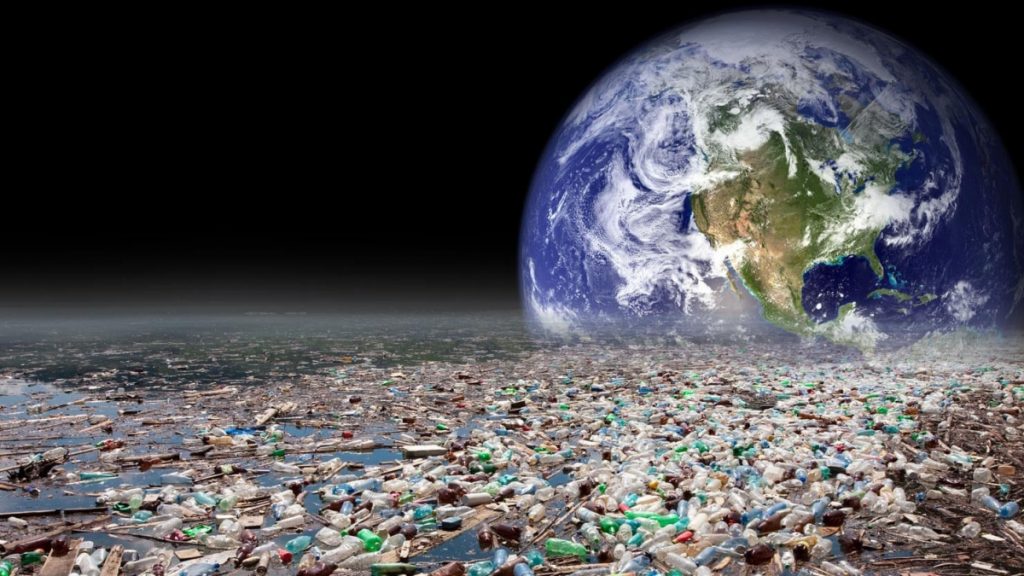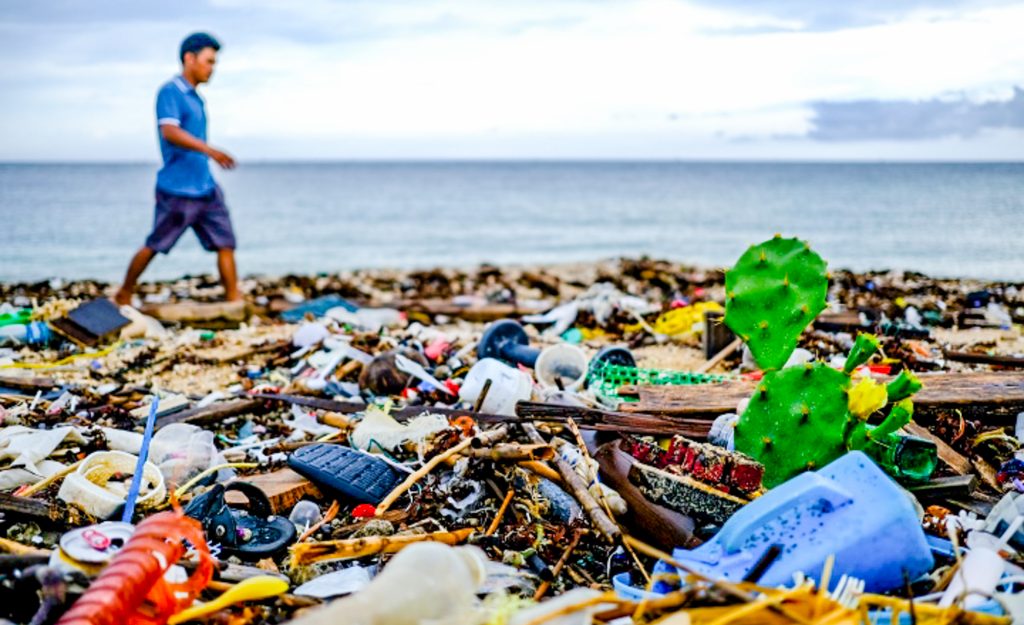The situation of plastic and nylon waste, as well as the problem of white pollution, is concerning.
NTTU – White pollution and the harmful effects of plastic waste are currently global issues that many people are concerned about due to the level of harm they cause to the environment and human health. The following article will help teachers and students understand more about this issue!
What is white pollution?
White pollution is a type of environmental pollution caused by plastic waste and nylon bags. Currently, the white pollution situation in Vietnam is alarming. Our country is also one of the countries in the world with an increasing and uncontrollable amount of plastic waste and nylon bags.

According to the assessment of the Ministry of Natural Resources and Environment, the current situation of plastic waste and nylon pollution is very serious in Vietnam, with the amount of plastic waste and nylon bags still at a very high level, accounting for about 8-12% of household solid waste. Statistics show that if an average of 10% of plastic waste and nylon bags in Vietnam is not reused but completely disposed of, the amount of plastic waste could reach nearly 2.5 million tons per year. This has serious impacts on the environment and human health.
The harm of plastic waste, nylon, and white pollution
With the advantages of durability, convenience, and low cost, products made from plastic and nylon are widely used and almost present everywhere, from small shops to supermarkets and large commercial centers. There are many types of plastics and applications that are difficult to replace with other materials, such as insulation covers, water pipes, imitation leather, car parts, medical equipment, etc. However, the indiscriminate use of single-use plastic products such as plastic bags, cups, spoons, and plastic bowls is causing the amount of waste to increase rapidly each year. Vietnam’s plastic waste recycling technology is not developed, and the practice of littering waste on the streets, drains, and canals is causing waste to spread out into the environment.

It is worrying that Vietnamese people do not have the habit of sorting household waste, which is increasingly causing difficulties in the process of plastic waste treatment. The sorting and collection of plastic waste and nylon bags for recycling are often spontaneous in some households, by waste collectors, and informal recyclers. Nylon bags used at markets and shopping centers are often super-thin and hard to decompose, commonly found in landfills due to their low recycling value.
If not exposed to sunlight, the decomposition process of plastic and nylon bags can take from 500 to 1,000 years. When accumulated excessively or scattered in the environment, they will cause white pollution, urban aesthetic degradation, air pollution, and have a significant impact on thousands of living organisms including animals, microorganisms, and humans. When mixed into the soil, nylon bags will alter the physical properties of the soil, causing erosion, preventing the soil from retaining water and nutrients, hindering oxygen from entering the soil, affecting the growth of crops; causing blockages in drains and channels, leading to waterlogging or flooding; polluting water sources…
Dealing with white pollution
It is time for each individual to abandon the habit of using plastic items – convenient but causing immense harm to the environment and our lives. A few seconds to dispose of waste properly, a minute to sort waste according to regulations, and a reminder for those around us not to litter, bring reusable bags when shopping, say no to single-use plastics… All these small actions will contribute to the larger goal of reducing white pollution from plastic waste and nylon bags.
Pharmacist Huynh Thi Chi – Medical Laboratory Technician (General)



